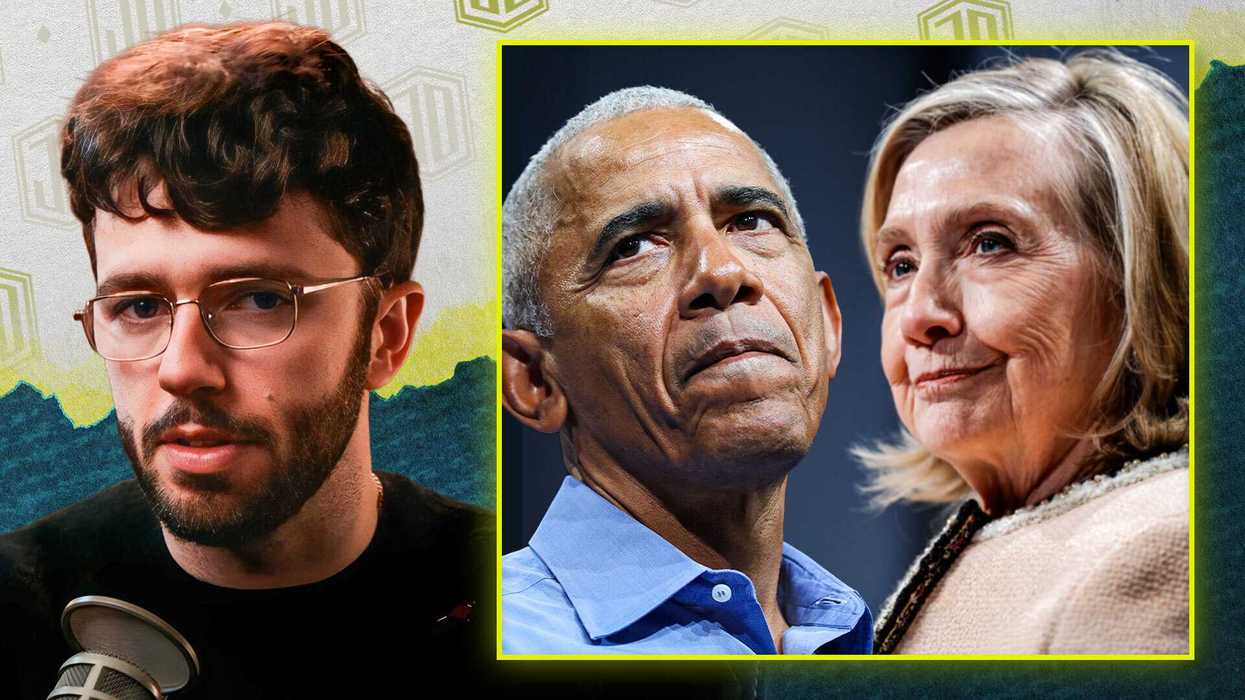© 2026 Blaze Media LLC. All rights reserved.
Libyan Gov't Set to Infuriate Islamists With Ban on Political Parties Based on Religion, Tribe or Ethnicity
April 25, 2012
"This kind of clause is only useful in countries where there exists many religions..."
In the wake of Muammar Gaddafi's death and ever-changing political constructs, the Libyan government has issued a landmark ban on political parties based on religion, tribe and ethnicity. Here's the problem: A new Islamist party in the country is expected to be the front-runner for political power gain and the group has already signaled that, if needed, it will fight the restriction.
According to Reuters, National Transitional (NTC) spokesman Mohammed al-Harizy announced the new law, which will oversee political party formation. The decision, which was made on Tuesday, will prevent the three elements -- faith, ethnic line and tribe -- from serving as a basis of a party's platform and existence.

While the NTC says the law will promote "national unity," the BBC reports that some analysts see the regulation as a catalyst that will infuriate religious parties vying for power in the North African nation.
Al-Harizy didn't specify how this decision would impact the new Islamist party that was formed back in March by the Muslim Brotherhood, among other Islamists. This party, which is clearly based on Islamic sentiment, has been expected to have a strong showing in Libya's upcoming elections.
The political collective, called Freedom and Development, is headed by Mohammed Sawan and certainly shares in the NTC's wish that Libya be sharia compliant. Sawan has made his opposition to the new party rule clear.

"This kind of clause is only useful in countries where there exists many religions, not in Libya where most people are religious Muslims," Sawan said in an interview with Reuters. "This law needs to be reviewed by the NTC and if it's not changed, we would have to protest it."
The Associated Press adds:
Islamists, like most political or religious groups in Libya, were long suppressed by former dictator Moammar Gadhafi. He was killed by Libyan rebels in October after eight months of fighting.The law comes two months ahead of the country's first general elections to choose a 200-member assembly tasked with writing a new constitution and forming a government.
Islamic parties and movements have moved to fill the political vacuum left by the collapse of authoritarian regimes after last year's Arab Spring uprisings. In Tunisia and Egypt, Islamists made significant political gains in parliamentary elections.
Libya is expected to write a new constitution, at which point Islamic law's role will be fully known, following the upcoming elections. The Muslim Brotherhood and other Islamists are expected to flourish in Libya, as they have in Tunisia, Egypt and Morocco. Elections are scheduled to take place in June.
(H/T: Reuters via Yahoo!)
Want to leave a tip?
We answer to you. Help keep our content free of advertisers and big tech censorship by leaving a tip today.
Want to join the conversation?
Already a subscriber?
Billy Hallowell is a digital TV host and interviewer for Faithwire and CBN News and the co-host of CBN’s "Quick Start Podcast."
Billy Hallowell
Billy Hallowell is a digital TV host and interviewer for Faithwire and CBN News and the co-host of CBN’s "Quick Start Podcast."
more stories
Sign up for the Blaze newsletter
By signing up, you agree to our Privacy Policy and Terms of Use, and agree to receive content that may sometimes include advertisements. You may opt out at any time.
Related Content
© 2026 Blaze Media LLC. All rights reserved.
Get the stories that matter most delivered directly to your inbox.
By signing up, you agree to our Privacy Policy and Terms of Use, and agree to receive content that may sometimes include advertisements. You may opt out at any time.






